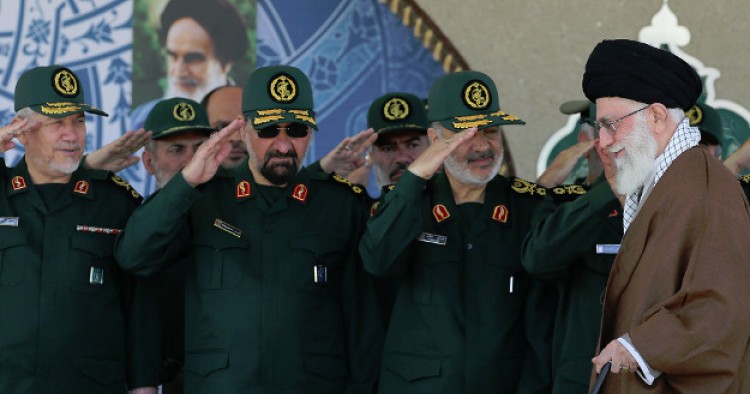A senior Iranian official has warned that the United States will regret if it takes any military action against the Islamic Republic or its interests in the region. His comments came after Army Gen. Joseph Votel, the top U.S. military commander in the Middle East, said last week that the United States should hold Iran accountable for its subversive activities in the region. “Mr. Votel, the U.S. Central Command commander, has repeated anti-Iran allegations and called for military action to stop our countries’ actions,” Secretary of Iran's Expediency Council Mohsen Rezaei wrote on his Instagram account. “You should know that Iran is not Iraq or Afghanistan. You will regret any adventurism,” he warned. The former head of the Islamic Revolution Guards Corps (I.R.G.C.) further cautioned the Trump administration not to forget “Mr. [George W.] Bush’s experience of waging wars.” Rezaei also accused U.S. allies of fomenting instability in the region.
Comment: Gen. Votel’s March 29 remarks on Iran appear to have alarmed Iranian leaders. Iran's Defense Minister Hossein Dehghan on Thursday also reacted angrily to Votel’s comments, calling on Washington to withdraw its military forces from the Gulf region. “What are the Americans doing in the Persian Gulf? It is better they leave this region and do not create trouble for the regional countries,” he said, adding that the U.S. military should not expect a red carpet treatment in the Gulf region.
In a testimony to the House Armed Services Committee last Wednesday, Gen. Votel had told lawmakers that Iran “poses the greatest long-term threat to stability” in the Middle East. He added that “Iran must believe there will be prohibitive consequences if it chooses to continue its malign activities designed to foment instability in the region.”
Rezaei is a prominent political and military figure in Iran. He commanded the I.R.G.C. for almost two decades and is currently the chairman of Iran’s Expediency Council, an un-elected body which advises Supreme Leader Ali Khamenei on state matters and has the power to adjudicate disputes on legislation. Rezaei has unsuccessfully run for president and is considering challenging incumbent President Hassan Rouhani in the upcoming elections slated for May 19. His strong anti-U.S. views play well with Iran’s civilian and military hardliners, but are unlikely to win him votes among ordinary Iranians.
The Middle East Institute (MEI) is an independent, non-partisan, non-for-profit, educational organization. It does not engage in advocacy and its scholars’ opinions are their own. MEI welcomes financial donations, but retains sole editorial control over its work and its publications reflect only the authors’ views. For a listing of MEI donors, please click here.













